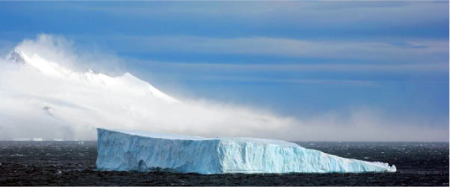| SEARCH |
-

Nov 17, 2015
Reflections on a three-decade legacy
The International Geosphere-Biosphere Programme (IGBP) will come to a close at t...
-
Nov 17, 2015
Use of and access to content on this website
Text and images produced by IGBP in house are free to use with appropriate credi...
-
Nov 12, 2015
Bella Gaia performance and panel discussion to mark IGBP's closure
A musical performance by Bella Gaia will celebrate the achievements and legacy o...
-

Towards Future Earth:
evolution or revolution?
During its three decades of existence, the International Geosphere-Biosphere Pro...
-
A personal note on IGBP and the social sciences
Humans are an integral component of the Earth system as conceptualised by IGBP. João Morais recalls key milestones in IGBP’s engagement with the social sciences and offers some words of advice for Future Earth.
-
IGBP and Earth observation:
a co-evolution
The iconic images of Earth beamed back by the earliest spacecraft helped to galvanise interest in our planet’s environment. The subsequent evolution and development of satellites for Earth observation has been intricately linked with that of IGBP and other global-change research programmes, write Jack Kaye and Cat Downy .
-
Deltas at risk
Around 500 million people worldwide live on deltas, but many of the world's deltas are sinking due ...
-
Climate change: the state of the science
A new data visualization released on the first day of the plenary negotiations at the UNFCCC’s clima...
-
Climate Change:
the State of the Science
Videos now online from the Stockholm public forum to mark the launch of the IPCC's climate report, 2...
North Pacific regime shifts: definitions, issues and recent transitions
Overland J E, Rodionov S, Minobe S and Bond N

The many recent publications on regimes and shifts highlight the importance of decadal variability in understanding climate and ecosystems and their connectivity. This paper explores several issues in the application of regime concepts. Even the definition of regimes is unclear, as usage by different authors highlight: (1) displacement or shifts in timeseries, (2) underlying mechanisms, and (3) the distinction between external forcing and internal reorganization of ecosystems. Such differences arise, and cannot be easily resolved, because of the relatively short duration of available physical and biological timeseries, and the complexity of multivariate process in marine systems with unknown variables and relationships. Climate indices often show a rather Gaussian distribution of values with a single mean, rather than clearly separated discrete multiple states. These physical indices can be represented by a red noise long memory process, where the index can, in fact, deviate substantially from the long term mean for multiple years. If we consider changes in timeseries themselves, then climate variables for the North Pacific display shifts near 1977, 1989 and 1998. Recent variability suggests considerable uncertainty in the current state of the North Pacific. Biological variables often show a broader distribution of shifts over time, which is consistent with different types of responses to climate for different ecosystem elements and the importance of time lags in response to changes in physical forcing. Our current understanding of regime shifts is not a deterministic one, and while one can discuss amplitudes and mean duration of regimes, we cannot predict their precise timing other than to say that they will be a main feature of future climate and ecosystem states. While the authors believe that a single definition for regimes is currently not possible, the concept continues to be useful in moving the discussion of ecosystems away from the assumptions of single species and stationary processes.

IGBP closed at the end of 2015. This website is no longer updated.
-

Global Change Magazine No. 84
This final issue of the magazine takes stock of IGBP’s scientific and institutional accomplishments as well as its contributions to policy and capacity building. It features interviews of several past...
-

Global Change Magazine No. 83
This issue features a special section on carbon. You can read about peak greenhouse-gas emissions in China, the mitigation of black carbon emissions and the effect of the 2010-2011 La Niña event on gl...
-
INTERGOVERNMENTAL PANEL ON CLIMATE CHANGE:
How green is my future?
UN panel foresees big growth in renewable energy, but policies will dictate just how big.
-
UK:
'The Anthropocene: a new epoch of geological time?'
Royal Society, Philosphical Transactions A




















